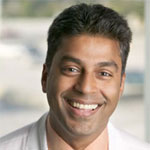One of the most common reasons for a cardiology consultation is the uncomfortable sensation of ones own heart beat either pausing, skipping or even racing. These are often most notable at night or when we are resting on our left side. Symptoms also include chest pain, shortness of breath, dizziness and lightheadedness.
Capturing these events is the key to making a diagnosis. Frequent events can be picked up on an EKG, stress test or a 24-hr holter monitor. Rare events may require a four week event monitor or even an implantable loop recorder that stays active for up to three years.
Pauses (bradycardia) can be caused by certain medications that slow down the heart rate or following an extra beat when the heart rhythm must reset itself. A pause greater than three seconds may require a pacemaker to prevent fainting episodes.
Skip beats are extra heartbeats that can originate in the upper chamber of the heart (PAC – premature atrial contraction) or the lower chamber ( PvC- premature ventricular contraction). While sometimes distressing, even if every other heart beat was a skipped beat no harm would be done. Avoidance of triggers is the key to reducing these episodes.
Lack of sleep, dehydration, chronic stress, caffeine, decongestants, antihistamines, energy drinks and weight loss supplements are common causes. Occasionally beta-blockers or calcium channel blockers are used to suppress these extra beats.A racing heart (heart rate > 100 beats/min) is what concerns doctors the most. Most commonly this is your own natural heart rhythm going fast (sinus tachcardia).
The same triggers as noted above along with anemia, hyperthyroidism and anxiety are often culprits. However in some individuals the fast heart rate can be due to a ‘short circuiting ‘ of the electrical fibers of the heart. This can lead to more serious rhythm disturbance called atrial flutter (AF), atrial fibrillation (AFIB), supraventricular tachycardia (SvT) or ventricular tachycardia (vT).
Since these disorders have the potential to make you collapse, longterm rhythm medications and blood thinners ( to prevent strokes) are recommended. In more serious cases a specialized catheter-guided burning procedure called an ‘ablation’ can be performed or an electical shock can be delivered through a defibrillator to reset the heart rhythm.
Yoga, meditation, deep breathing and regular aerobic exercise all help to control your heart rate but if those fluttering persist, let us help quieten them down!


